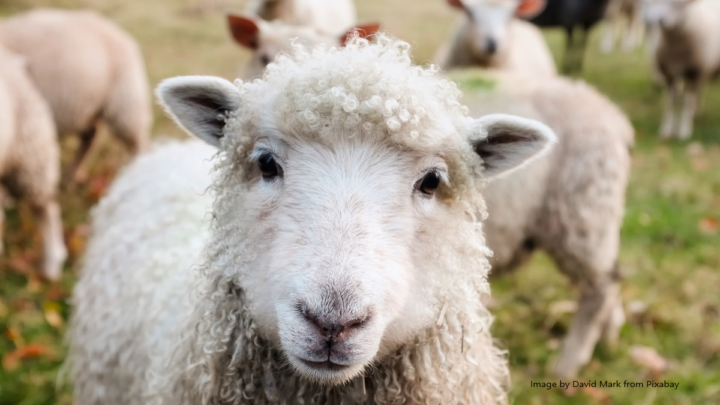— Joyce Day, Pastor of Congregational Care, St. James UMC
In Ezekiel 34:2-4, God tells Ezekiel to declare God’s message of warning to the leaders of Israel:
Human one, prophesy against Israel’s shepherds. Prophesy and say to them, The Lord God proclaims to the shepherds: Doom to Israel’s shepherds who tended themselves! Shouldn’t shepherds tend the flock? You drink the milk, you wear the wool, and you slaughter the fat animals, but you don’t tend the flock. You don’t strengthen the weak, heal the sick, bind up the injured, bring back the strays, or seek out the lost; but instead you use force to rule them with injustice.
When someone is given the role of leadership, that mantle is to be worn with care. It is to be a sign of responsibility. Leaders are to give of themselves for the well-being of those who are being led. When leaders fail to care for those for whom they are responsible, they must be held accountable. That is God’s message to the leaders of Israel, and it is God’s message to all leaders at all times.
Richard Rohr wrote, “Love without power is only sentimentality, cheap and innocuous religion. However, power without love becomes brutality and that’s what every culture instinctively moves toward: self-protection and self-aggrandizement. Once we have learned the truth of the Grail, of love, we cannot believe the world of power is adequate or a correct response to reality.”
When our leaders act carelessly, when they commit crimes or act in ways that harm others, and when they promote an environment of self-protection and self-aggrandizement, it is an act of grace to hold them accountable for their behavior. “But what about forgiveness?” some ask. Aren’t we supposed to be a forgiving people? Yes, we are. Even so, there is a big difference between holding someone accountable for bad behavior and forgiving them for that behavior.
Forgiveness is a gift we give ourselves as well as the other person. When we carry around a burden of unforgiveness, our souls suffer. Jesus even says that until we forgive others, we ourselves cannot receive God’s forgiveness. Grace is given solely for the well-being of the one to whom it is given. Forgiveness is a part of grace, but so is accountability. Holding one another accountable for dangerous and harmful behavior is a way of saying, “I care about your spiritual and physical well-being, and what you are doing is harmful to you because it is harmful to others. You must either stop this behavior, or you will be removed from the position of being able to cause the harm.”
Consider the case of an abusive spouse. It is quite likely that this person experienced abuse as a child. They are now acting out a harmful behavior that they learned early in life. This person needs both forgiveness and accountability. While it will take time and healing on the part of the one who has been abused, that person will only find complete healing when he or she is able to forgive the abuser. On the other hand, if the abuser is not held accountable for his or her actions, possibly through a prison sentence but definitely through the ending of the relationship, he or she will never be empowered to grow, to become a better person. On the contrary, he or she will continue the abusive behavior, thus causing more and more harm to others and to themselves.
Grace, then, sometimes – perhaps even always – requires accountability, especially for those who hold positions of great power because they can cause the greatest harm. Whether in politics, religion, business, or families, abuse of power cannot be allowed to continue. Those who abuse their power must not be allowed to continue the abuse, and that means facing the consequences – legal and otherwise – of their actions. It was true for Israel’s shepherds. It is true for ours.

